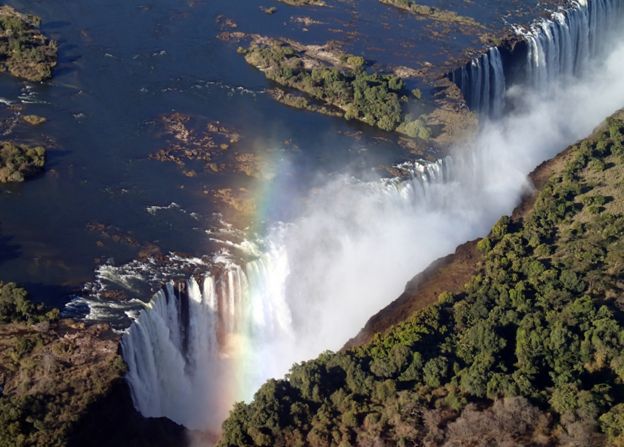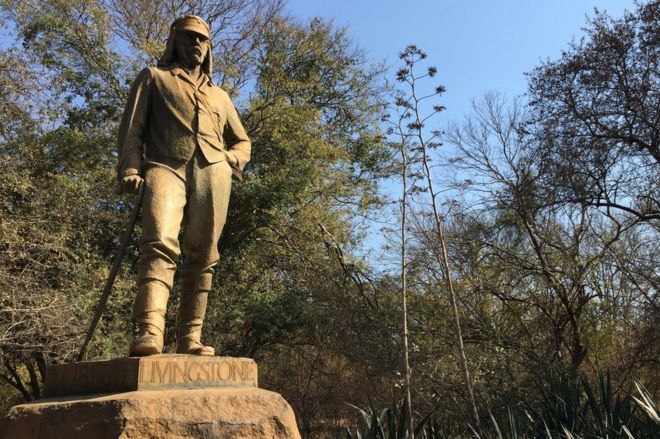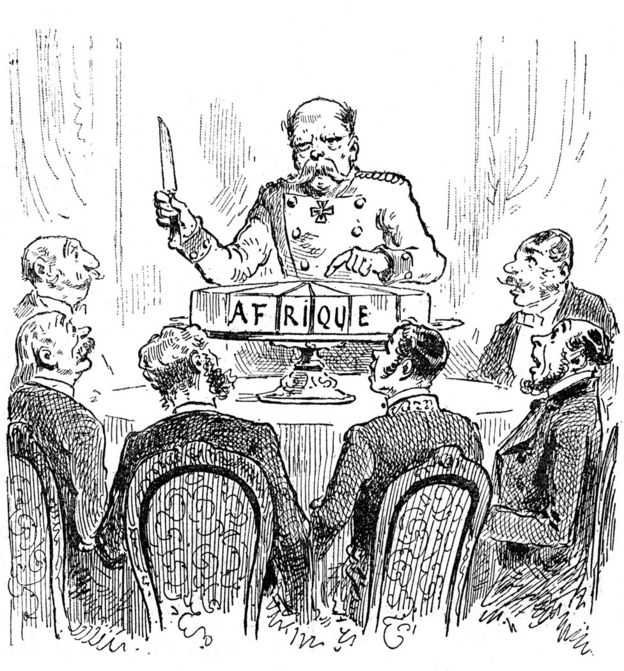ii
 In August 1934, a memorial statue to one of Britain's greatest national heroes, David Livingstone, was unveiled alongside his beloved Victoria Falls.
In August 1934, a memorial statue to one of Britain's greatest national heroes, David Livingstone, was unveiled alongside his beloved Victoria Falls.
A thousand people attended the grand ceremony, including British government dignitaries and hundreds of Africans, some of whom had travelled for days to honour him.
Fully 60 years after the explorer's death, Livingstone's almost mythical status was undiminished.
A Christian missionary who risked his life many times to expose - and ultimately end - the
evils of the East African slave trade, he introduced the world to one of its natural wonders, and was the first person ever to walk across Africa from coast to coast, exploring and mapping the geography of the "dark continent". Images of the life-sized bronze on the banks of the Zambezi were broadcast across the British Empire, countless school children thrilling to the stories of Livingstone's adventures and achievements.
Images of the life-sized bronze on the banks of the Zambezi were broadcast across the British Empire, countless school children thrilling to the stories of Livingstone's adventures and achievements.
Today, visitors still file past the statue on their way to experience the humbling majesty of the Zambezi as it plunges over the towering First Gorge.
But the British are notable by their absence.
Profound irony
Official figures from the Zimbabwe Tourism Ministry show that, since the turn of the millennium, the statue has rarely heard an accent from the United Kingdom, never mind voices from Livingstone's native Scotland.
In 2015, there were more Italian visitors than Britons, about twice as many Australians and French, three times as many Germans and seven times the number of Americans.

Scramble for Africa
The British Embassy has been lobbied by town businesses to push for the inclusion of a paragraph in the UK's official Zimbabwe travel advice, saying that warnings of violence, assaults by security forces, shortages of fuel and water do not apply to Victoria Falls.
But the advice has not changed.
The UK's relationship with Zimbabwe was formalised following the Congress of Berlin in 1885, part of the so-called scramble for Africa.
 GETTY IMAGES
GETTY IMAGES
Western powers sat around a table carving up the continent and claiming territorial rights.
Britain walked away with the keys to exploiting the area it would later call Southern Rhodesia, now Zimbabwe.
The man granted the honour of unveiling David Livingstone's statue on the banks of the Zambezi in 1934 was the explorer's nephew, Howard Moffatt.
A very different personality to his liberal and reforming uncle, Moffatt had just stepped down as prime minister of Southern Rhodesia, having pushed through the Land Apportionment Act of 1930.
Moral ambiguity
The legislation barred African landownership in the British Crown colony, outside special reserves.
The best land was allocated exclusively to white people, farms where the seeds of black grievance and bitterness were sown.
Mr Mugabe's violent seizure of white-owned property 70 years later might be seen by some as the bloody consequence of that colonial arrogance.
 GETTY IMAGES
GETTY IMAGES
The moral ambiguity that lies behind Britain's relationship with Zimbabwe surely helps explain the persistent reluctance of many in this country to risk association with it.
Since 2015, Victoria Falls has had its own international airport with a runway capable of taking the largest passenger aircraft.
The townsfolk have pressed airlines to begin direct flights from Europe, but British carriers have so far not expressed much interest.
Political instability
UK airlines say there are commercial and logistical reasons for not flying directly to the resort at the moment.
It is easy to find reasons not to step upon the troubled lands of Zimbabwe.
At the moment, the country faces an acute cash shortage. cash machines are usually empty, and American dollars - now the legal currency - are so scarce, hawkers beg tourists for their shoes and clothes.
oo


No comments:
Post a Comment